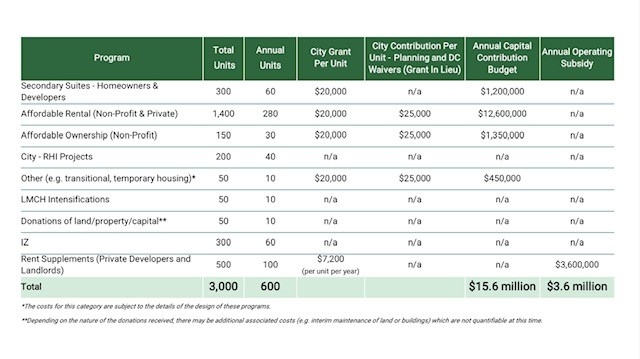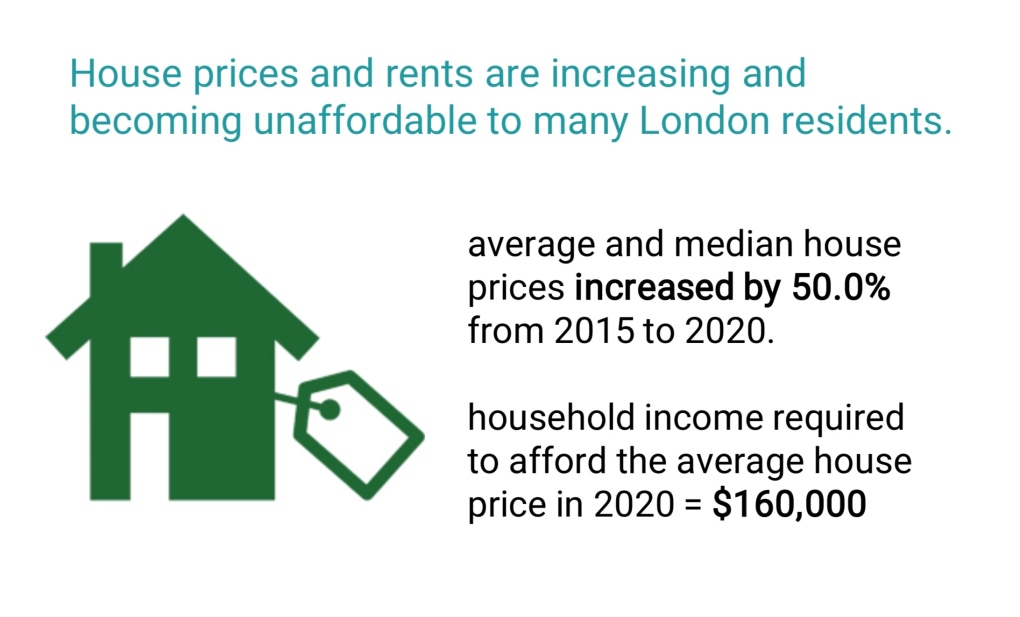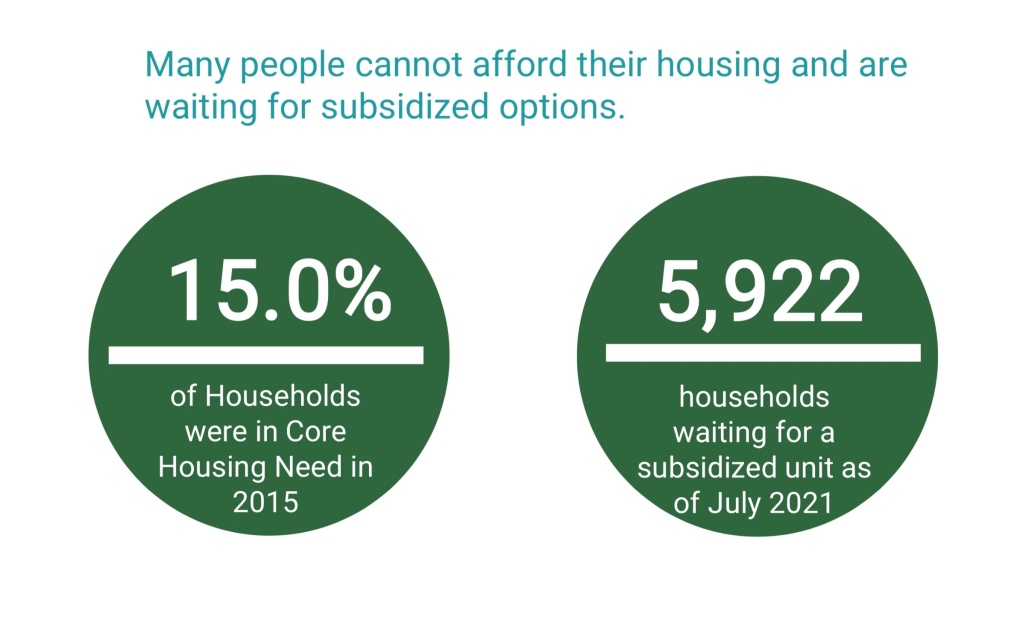Accelerating London's billion-dollar plan to end housing crisis brings risk and reward
“Three-thousand affordable housing units in just five years,” challenged Mayor Ed Holder during his 2021 State of the City address.
Ten months later, city staff have prepared a 24-page ‘Roadmap to 3,000 Affordable Units for the City of London’ that explores the cost to achieve the goal by the end of 2026.
The report reveals that the cost to address London’s housing crisis has climbed to $1 billion.
“The city is not doing this alone,” explains City Treasurer Anna Lisa Barbon. “This is a multi-pronged approach from other levels of government (and) the community.”
The plan includes gradually subsidizing the rent of 500 households by 2026, eventually adding $3.6 million each year to the property tax-supported budget.

In addition, $78 million ($15.6 million each year for five years) would be contributed towards the construction and renovation of new units.
“The plan was 10 years, we asked ‘What would it look like in five years?’ This is staff’s report about what it would take,” says Budget Chair Councillor Elizabeth Peloza.

Between 2015 and 2020, the average market rent in London climbed from $898/month to $1147/month.
In 2020, families had to earn $160,000 to afford the average house in London.
And 5,592 households were on the waiting list for affordable housing in July.

The acceleration plan would require council to accept some financial risks, including possible impacts to metrics that support City Hall’s triple-A credit rating.
As well, deeply depleting several reserve funds of $52 million to support a New Affordable Housing Reserve Fund will limit opportunities during the next term of council.
“If another opportunity that council is interested in comes up, those reserve funds are already depleted and the money won’t be there,” explains Peloza. “So, it’s a matter of balancing the opportunity we have with this project against future ones.”
Barbon says prudent financial decisions by council in the past have created the financial ability to accelerate the housing plan starting in 2022.
“We are not deviating from our key financial strategies,” she adds. “We are not compromising anything.”
Peloza says accelerating the affordable housing plan from 10 to five years will help solve other council priorities tied to employment, poverty and families.
“If you don’t have housing, how do you get a job? How do your kids go to school? How do you put bread on the table without a table?"
The affordable housing acceleration plan will be discussed by council’s Community and Protective Services Committee on November 23.
CTVNews.ca Top Stories

Calgary doctor charged with sexual assault of multiple patients
A Calgary doctor is facing charges after allegedly sexually assaulting four patients.
Armed and barricaded person in Barrie, Ont., immediate area evacuated
Barrie police are on the scene of an ongoing investigation in the area of Bayfield Street and Heather Street.
'Embarrassed': NDP MP calls on Randy Boissonnault to resign over false Indigenous claims
A Métis member of Parliament is calling on the employment minister to resign over what he calls harmful false claims to Indigenous ancestry.
Trump chooses TV doctor Mehmet Oz to lead Centers for Medicare and Medicaid Services
President-elect Donald Trump on Tuesday tapped Dr. Mehmet Oz, a former television talk show host and heart surgeon, to head the agency that oversees health insurance programs for millions of older, poor and disabled Americans.
Sitting too much linked to heart disease –– even if you work out, according to new study
Sitting at your desk all day may put you at greater risk for heart disease –– even if you work out in your spare time, according to new research.
'I'm just tickled pink': Two childhood friends from New Brunswick named Rhodes Scholars
Two young women from New Brunswick have won one of the most prestigious and sought-after academic honours in the world.
Swiftie's friendship bracelet beads confiscated at Calgary airport
A Canadian Taylor Swift fan has some 'Bad Blood' with the Calgary International Airport after security staff confiscated hundreds of dollars worth of beads she was going to use to make friendship bracelets.
Two undersea cables in Baltic Sea disrupted, sparking warnings of possible ‘hybrid warfare’
Two undersea internet cables in the Baltic Sea have been suddenly disrupted, according to local telecommunications companies, amid fresh warnings of possible Russian interference with global undersea infrastructure.
Anonymous male celebrity files extortion lawsuit against attorney representing Sean 'Diddy' Combs accusers
An anonymous male celebrity says he is the victim of an extortion scheme and is suing a high-powered Texas attorney who is representing several people in civil lawsuits that accuse Sean “Diddy” Combs of sexual assault.
































